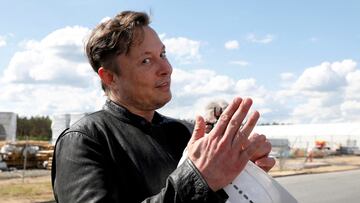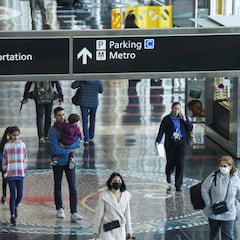Elon Musk buys Twitter: what are the most expensive company purchases? Whatsapp, YouTube, Instagram…
After Twitter accepted Elon Musk’s offer to purchase the platform, many are concerned about the abilities of the super rich to impact market competition.


Elon Musk and Twitter have struck a $44 billion deal that will leave the social media platform in the hands of the Tesla and SpaceX CEO. Initially, Twitter’s board had tried to stop Musk’s advances by deploying a poison bill strategy. The board has unanimously agreed to this approach which would have allowed board members to purchase discounted shares of the company’s stock in the case that a non-board member, like Musk, acquired fifteen percent of total shares.
While Musk has stated that this intention is to protect Twitter as a free speech platform, many employees and users are worried about the future of the application.
The news has raised many concerns over the power of wealthy individuals who have begun to acquire companies and media outlets for huge sums over the past decade.
In 2013, Jeff Bezos acquired The Washington Post for $250 million, a fraction of what Musk spent on Twitter. Additionally, to expand its presence, Amazon purchased the grocery store chain Whole Foods for $13.7 billion in 2018.
Related: Elon Musk fears for life after Russian threat
Digital and Social Media
Within social media markets, larger entities like Facebook. now Meta, have purchased smaller competitors to reduce competition. In 2011, Facebook, now Meta, purchased Instagram for $1 billion, and today, the platform has a valuation of $102 billion. A few years later, Meta purchased the messaging plaform WhatsApp for a staggering $19 billion.
Consolidation within these markets is not new. In 2006, Google bought YouTube for $1.6 billion. Today the video streamer is worth much more, bringing in more than $11 billion in revenue each year.
Airlines
The airline industry has long been a target of antitrust activists as major mergers have led to a dramatic consolidation in the number of companies operating in the United States. Under US law, it is illegal for a merger between two companies to take place if the result will lead to a monopoly or an anti-competitive market environment. However, from 1990 to 2020, the number of major airlines in the United States fell from fifteen to six.
Airline Consolidation (1990-2022)
American Airlines
- Trans World Airlines (2001 — $500 million purchase)
- American West Airlines (2005 — $1.5 billion merger)
- US Airways (2015 — $11 billion merger)
Air Alaska
- Virgin America (2018 — $4 billion purchase)
Delta
- Northwest Airlines (2008 — $1.2 billion merger)
South West Airlines
- AirTran Always (2010 — $1.4 billion acquired)
United Airlines
- Continental Airlines (2010 — $3.2 billion merger)
Four major firms, American, Delta, Southwest, and United, dominate the US market. This is because each airline dominates specific routes or cities, leaving them reliant on one or two companies.
The airline industry has been described as an “oligopoly,” meaning that “the market is dominated by a small number of firms.”
While this does not necessarily mean that the market is on the brink of monopolization, research has shown that “oligopolists have incentives to preserve their market power strategically and reduce competition, often by cooperating with other firms or by driving other firms out of the market.”
Additionally, scholars have noted that investment comapnies own major stakes in various companies, createing a market effect called “common ownership.”
The OECD defines common ownership as “the simultaneous ownership of shares in competing firms by institutional investors.”
Related stories
One study found that “in 2016 Berkshire Hathaway was the largest shareholder of both Delta (8%) and United (9%), the second-largest of Southwest (7%), and the third-largest of American (8%).” Vanguard, the mutual fund, also held “significant shares in all eight of the largest airlines [...] JetBlue (8%), the second-largest of Spirit (7%), third-largest of United (7%), Delta (6%), and Southwest (6%), and fourth-largest of American (6%) and Allegiant (7%).”
As a result of this common ownership the authors were able to find a three to seven percent increase in the cost of airfare.

